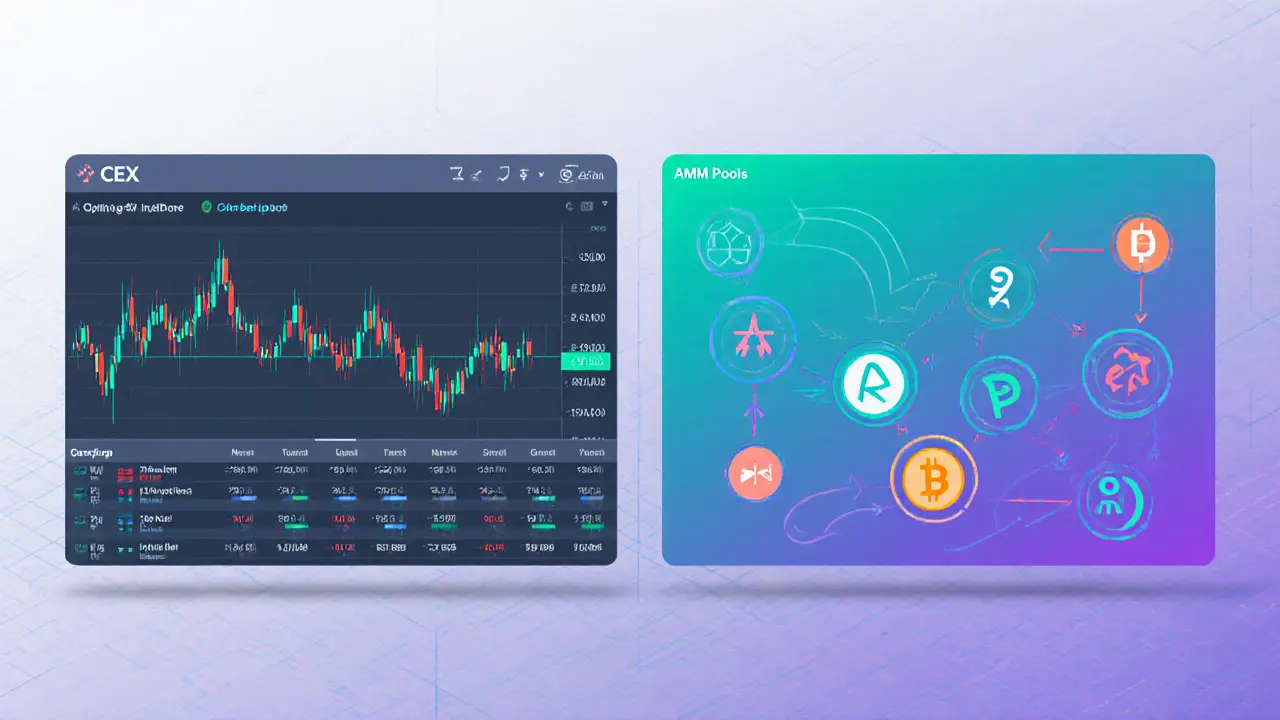AMM (Automated Market Maker) – Everything You Need to Know
When working with Automated Market Maker, a set of smart‑contract rules that price and trade assets without an order book. Also known as AMM, it lets traders swap tokens instantly while liquidity providers earn fees. This model reshapes how we think about crypto markets because it removes the need for traditional market makers.
Key Concepts Behind AMMs
The engine behind most AMMs is the Liquidity Pool, a shared reserve of two or more tokens that powers every trade. A pool’s depth determines slippage, so understanding Tokenomics, the supply, distribution and fee structure of a token is critical before you commit capital. On the front end, a Decentralized Exchange, a platform that lets users trade directly from their wallets calls the AMM contract to execute swaps, meaning the exchange itself is just a UI layer. Under the hood, all of this runs on Smart Contracts, self‑executing code on blockchains like Ethereum or BSC that enforce pricing formulas such as constant‑product (x·y=k). Together, these entities create a self‑sustaining ecosystem where traders, liquidity providers, and developers interact without a central authority.
Because AMMs combine finance and code, they open the door to yield farming—locking assets in a pool to earn extra tokens—or to launch new projects with instant market access. The posts below cover everything from licensing concerns for AMM‑based platforms, to deep dives on tokens like PREME and SafeMars that rely on AMM liquidity, and reviews of DEXs such as DackieSwap, Zyberswap v3 and Ubeswap V2. You’ll also find practical checklists for navigating regulatory sandboxes, assessing token risk, and spotting scams in the AMM space.
Ready to see how these ideas play out in real‑world tools and strategies? Below is a curated collection of guides, reviews, and analyses that will help you master AMMs, evaluate pools, and make smarter moves in the fast‑moving crypto market.

Liquidity on DEXs vs Centralized Exchanges: Key Differences and How to Choose
Nov 17, 2024, Posted by Ronan Caverly
Explore how liquidity works on DEXs versus centralized exchanges, covering slippage, speed, incentives, risks, and tips for choosing the right platform.
MORESEARCH HERE
Categories
TAGS
- decentralized exchange
- crypto exchange
- crypto exchange review
- crypto coin
- crypto airdrop
- cryptocurrency
- CoinMarketCap airdrop
- cryptocurrency trading
- smart contracts
- tokenomics
- DeFi
- cryptocurrency exchange safety
- crypto airdrop 2025
- cryptocurrency airdrop
- cryptocurrency exchange
- MiCA
- crypto airdrop guide
- blockchain token distribution
- crypto token
- Portugal crypto tax
